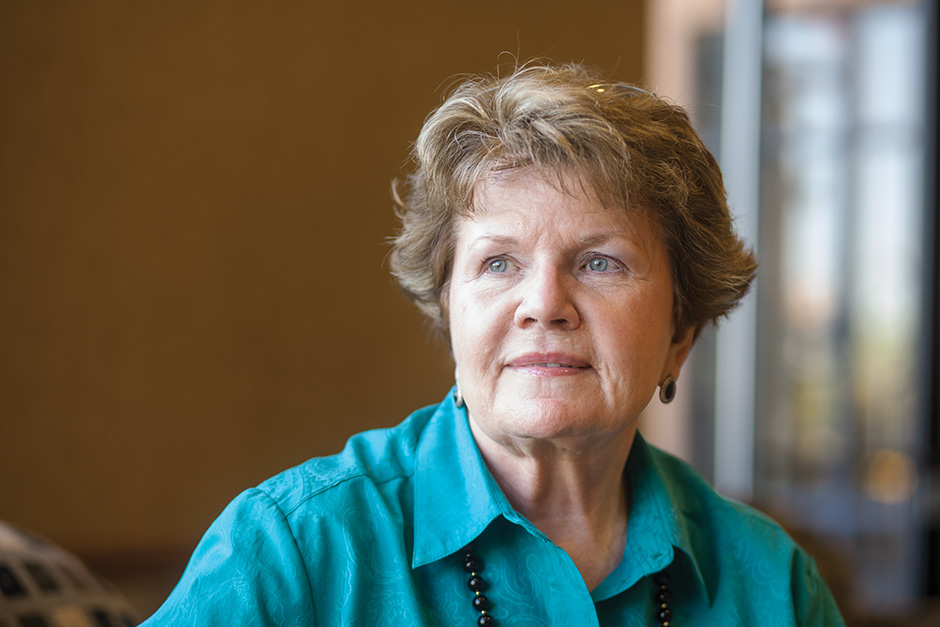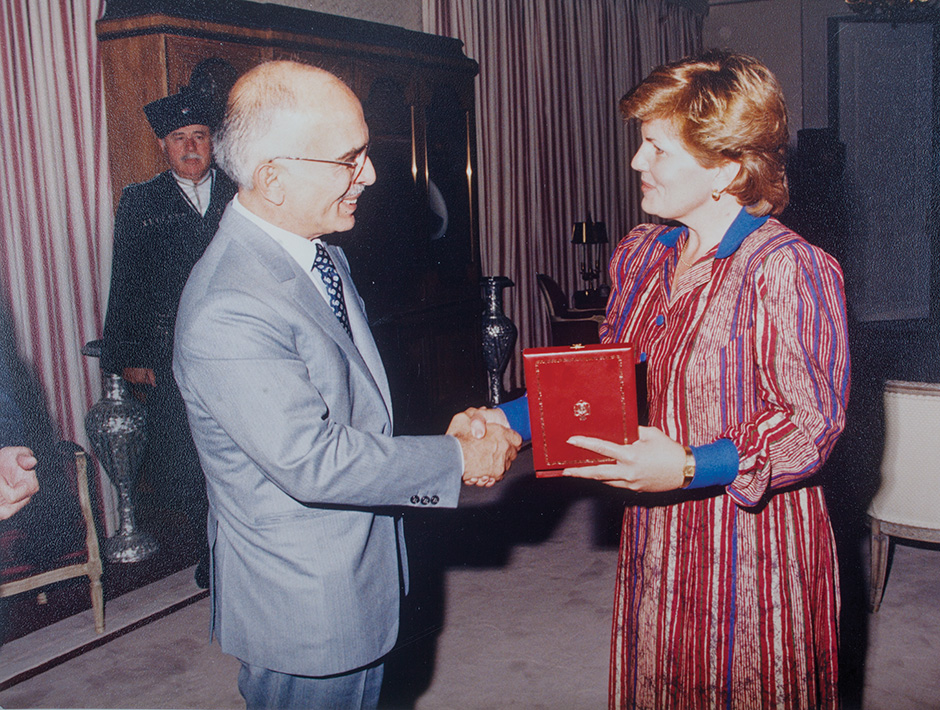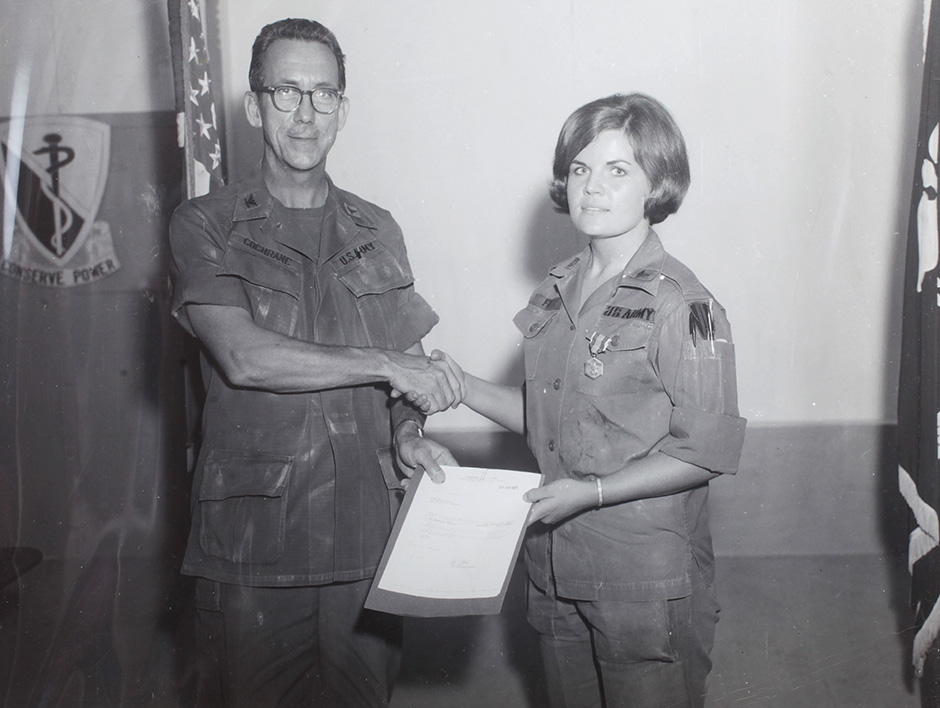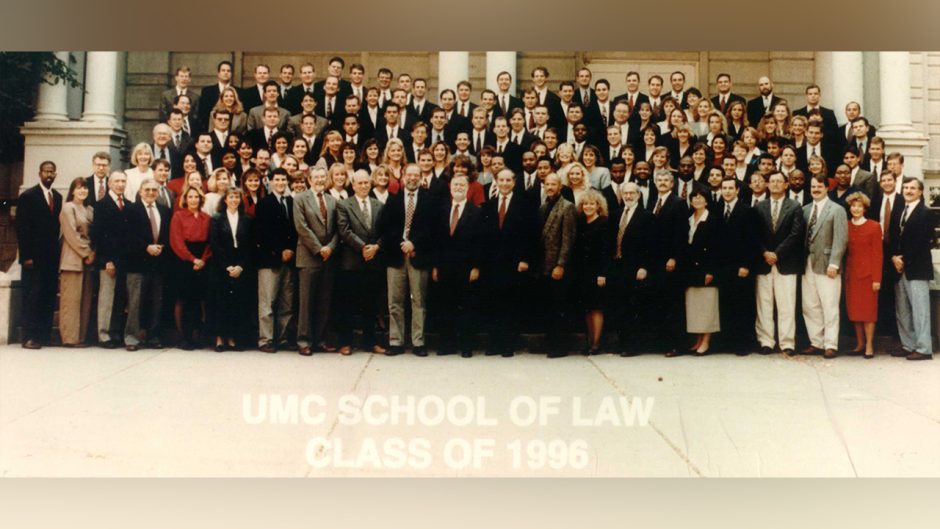April 27, 2020
Serving as a nurse on the front lines of the Vietnam War was a defining moment for University of Missouri alumna Winnie Fritz.
Every career move she has made in its wake has been held up against the war’s tough lessons.
It’s those teachings and a rigorous MU education that have helped guide the trajectory of her life, which has once again put Fritz in the trenches of a global emergency. However, this time she is sharing her wisdom with nurses around the world, who are fighting COVID-19.

Winnie Fritz graduated from MU's Sinclair School of Nursing in 1968 and has spent a lifetime serving others in the health care field. She is the senior vice president of operations and clinical services for HCCA Management.
Fritz knows this pandemic is their defining moment.
“It will be important for the health care teams to process this together,” she said. “They have been on a common journey, which is an advantage because they have a shared experience that they can talk about, cry about and learn from.”

Fritz enrolled in the U.S. Army Student Nurse Program at MU. In return for financial assistance for the final two years of school, Fritz owed three years of service.
Fritz is the senior vice president of operations and clinical services for HCCA Management, one of the oldest and most respected international health care management companies in the world. She has been providing key leadership for “daily” and “weekly” huddles with hundreds of nurses treating COVID-19 patients in the U.S. and around the world. She knows from personal experience that frequent communication is essential.
Fitz recommends focusing on two themes when communicating with staff: First, what do we know, such as new information and procedures? And second, how are we feeling, physically and emotionally?
“I’m always saying you can’t over communicate,” she said. “It’s also important to harvest good news as well as all the other — tell us about one event where you made a difference in a patient’s life or something new you tried, and it worked. End the talk focused upon something positive and with a ‘thank you.’ ”
Fritz credits a supportive family for much of her inner-strength as a young woman.
She grew up on Fritz Farms in Jerseyville, Illinois, where she knew paying for college would be tough for her parents. So she enrolled in the U.S. Army Student Nurse Program at MU. In return for financial assistance for the final two years of school, Fritz owed three years of service.
She was called up to serve in Vietnam in 1969. It was there that Fritz came to appreciate her strong family support and the high expectations of Eleanor Poundstone Van Natta, BSN ’56, her clinical instructor at University Hospital. Every day in clinicals, Van Natta pummeled Fritz with a barrage of “what if” questions. “What if the pump doesn’t work?” “What if his pressure drops?” etc. And every day, Fritz grew more nimble in her responses.
In Vietnam, everything she learned was brought to bear.
Since then, Fritz has served as nurse manager of the presidential suite at Walter Reed Army Medical Center in Washington, D.C., where she cared for plenty of VIP Patients, including Richard Nixon and Mamie Eisenhower as well as military brass and foreign heads of state. She would care for King Hussein bin Talal of Jordan, who was so impressed with her work that he hired her to help revamp the health care system in his country. She spent intervals of 17 years in Jordan. She still maintains a home in Jordan.

Fritz receives a Medal of Honor medallion from King Hussein bin Talal of Jordan for her work assessing the country’s 28-hospital system.
Today, Fritz is using a lifetime of experience to inform and support nurses battling the latest health care crisis — COVID-19.
She reminds those nurses that they problem-solve every day and that many of them have faced similar challenges such as Ebola, SARS, Dengue Fever, malaria, unreliable supply chains, and utilities that often left hospitals in some areas of world without power for many hours.
“They’ve been there; done that,” Fritz said. “I tell them to take those lessons and apply them now.”
Additionally, Fritz encourages nurses to share what’s working and what isn’t on the front lines.
“The staff members know the issues, and they know 90% of the answers," she said. "They know where the waste is and have ideas for fixing the problems."
Ultimately, rising to the demands of a pandemic requires a daily barrage of “what if” questions, similar to those MU’s Van Natta asked Fritz all those years ago: Do we have all the systems in place to get the right patients to the right place to receive the right care at the right time?
Fritz understands that advising health care workers in the midst of a pandemic is more than meeting the needs of the moment. It’s about molding the health care leaders of tomorrow who will, in turn, mentor the next generation of eager men and women on the front lines of their defining crisis.
“What did we learn, and how did we take care of each other?”
In 2014, the Mizzou Alumni Association honored Fritz with a Faculty-Alumni Award, and in 2015, the nursing school awarded her a citation of merit.





